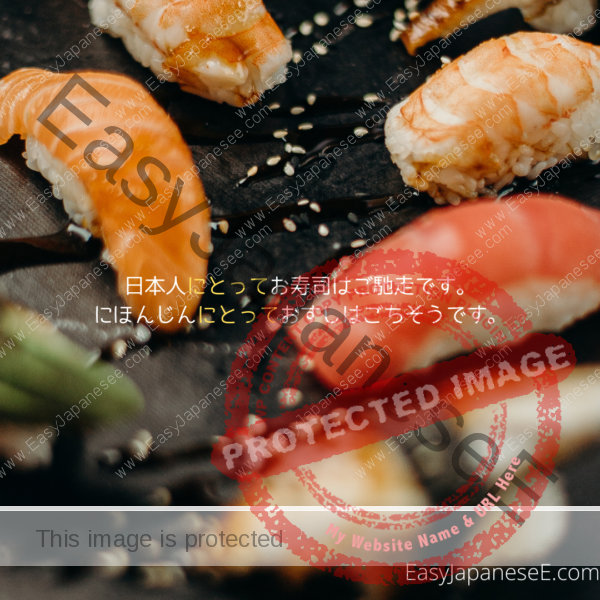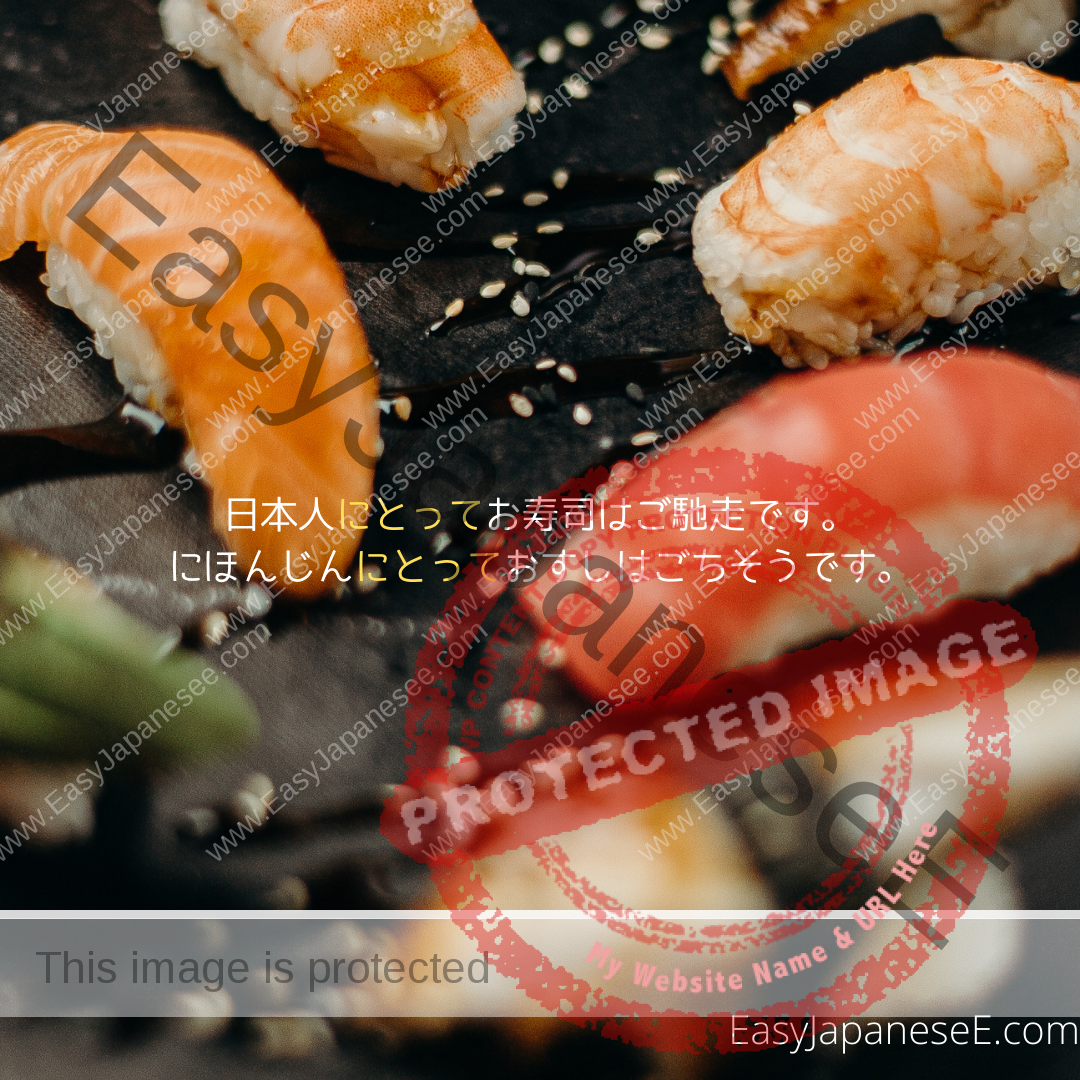
Today’s Grammar Point: ~にとって/~にとっては/~にとりまして(は)
~にとって is an expression to state whose point of view you are talking. You can translate it with a preposition like “for ~” or “to ~” but it actually means “from ~’s point of view” and usually a statement of a judgement or evaluation follows ~にとっては. If you want to emphasise the point of view is different from others, you can add は afterwards (i.e. ~にとっては). In a formal sentence, you can also say ~にとりまして(は).
Connection
- [noun] にとって(は)
- [noun] にとりまして(は)
Examples
夫は私にとってかけがえのない人です。
My husband is an irreplaceable person for me.
日本人にとってお寿司はご馳走です。(Today’s Caption)
Sushi is a treat for Japanese people.
その誘惑はエイミーさんにとって大きすぎた。
The temptation was too great for Amy.
80点は私にとっては良い点数ですが、兄にとっては悪い点数らしいです。
80 points is a good score for me, but it seems to be a bad score for my brother.
大学生にとっての500円と小学生にとっての500円は全然重みが違う。
The weight of 500 yen for adults and 500 yen for elementary school students are completely different.
大人には小さなことでも、子どもにとっては一大事だ。
Even small things for adults are important for children.
一万円なんて私にとっては大金です。
10,000 yen is a lot of money for me.
ジョンさんにとってはコーヒーは薬らしい。
Coffee seems to be a medicine for John.
私たちにとっては、この犬は家族の一員だ。
For my family, this dog is a member of the family.
弊社にとりましては、お客様の安全が第一の優先事項でございます。
For us, customer safety is our number one priority.
If you liked this article, please share it with your friends using the social media buttons below. Also, your clicks on ads on this page help covering the cost of running this website. Your support will be much appreciated.


One Reply to “~にとって/~にとっては/~とりまして(は)”